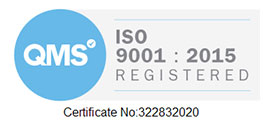The answer is yes! Protection studies, like fault studies, are a legal requirement in the UK, and are necessary to show that a fault will be cleared in an acceptable time that does not pose a risk to personnel or equipment. What is also forgotten is that it is often a requirement of a company insurers that a protection study is in place, to ensure protection of people and assets.
As power engineers, it should be an obvious requirement, but it is surprising how often our engineers have been to sites and found relays / LV trip units left on default settings – or set with the pickup and time setting to maximum to ‘prevent nuisance tripping’.
A protection coordination study does not need to be overly complex and for a simple LV systems or an HV RMU, they can be very simple – but some demonstration of settings and coordination is always required.
The majority of protection studies consider simple coordination of over current and earth fault elements from the DNO supply point to the largest LV feeder on the system. This can be done on simple packages, or included as part of a complex simulation model – where faults can be injected into the network and the relay sequence of operations identified to check faults are cleared and in what time.
The key thing in protection coordination settings is understanding the system constraints, the utility setting limits and what compromises you need to make. No system, apart from those in text books will grade perfectly and it is case of finding the best compromises in settings to ensure faults are cleared quickly and as much of the network is kept intact as possible
Other common applications including use of directional protection for meshed networks and defining and setting differential protection schemes for transformers and cables, such as REF, translay and Solkor and busbar protection. Setting of generators is where things get really interesting though 😁.
Protection design and setting is one of the most complex (and interesting areas) in power systems. So if you think you might need a protection study doing – please get in touch and we would be happy to help.
– IDMT Overcurrent and earth fault coordination
– Loss of Mains / G99 settings
– Directional Protection
– Differential Protection
– Generator Protection
– Distance Protection



